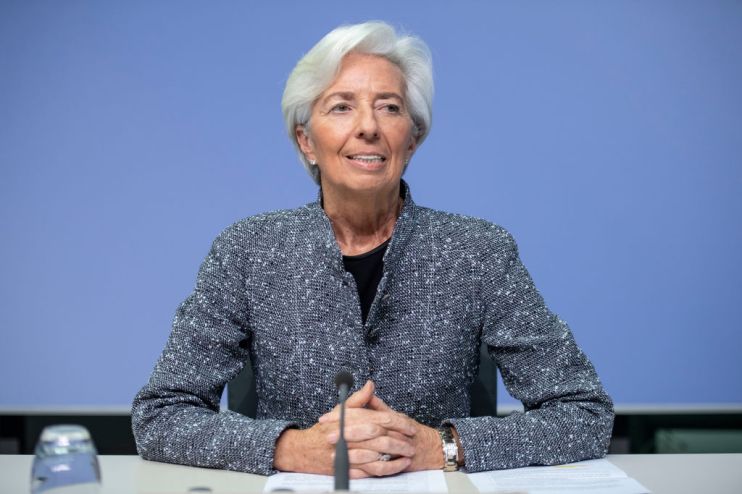ECB’s Christine Lagarde: Coronavirus cases putting recovery at risk

European Central Bank (ECB) president Christine Lagarde has warned that a second coronavirus wave could lead to a “shaky” economic recovery in the Eurozone, and said Covid has scarred some parts of the economy “probably for the long haul”.
However, Lagarde told the Wall Street Journal in an online conversation that monetary and fiscal policy had worked “hand in hand” during the pandemic. She said this had been more effective than during the financial crisis.
Data last week showed Eurozone inflation was negative for the second month in a row in September. That has raised the pressure on the ECB, whose mandate is to get inflation close to two per cent.
The Eurozone economy shrank by an enormous 11.8 per cent in the second quarter. It was by far the biggest drop on record. Although GDP has rebounded relatively strongly, rising coronavirus cases threaten to derail the recovery.
Lagarde said today: “We now fear that the containment measures that have to be taken by authorities will have an impact on this recovery.”
“So instead of that V shape that we all long for and hope for, we fear that it might have that second arm of the V a little bit more shaky.”
During the “fireside chat”, Lagarde gave little away about the direction of monetary policy. The ECB has launched a €1.35 trillion (£1.2 trillion) bond-buying programme to try to boost lending during Covid. Its main interest rate is at minus 0.5 per cent.
Lagarde: ECB policy will be ‘supportive’
Lagarde said the ECB does not think interest rates are currently so low that reducing them further would be counterproductive. Yet she said cutting interest rates is not “necessarily” the best option in “crisis” situations.
“We are confident that given the circumstances… monetary policies will have to continue to be supportive and to be accommodative in order to support fiscal measures,” she said.
The ECB boss praised governments for launching major fiscal support during the pandemic. “We are not the only game in town any more,” she said.
“We have fiscal and monetary policies working hand in hand and trying to leverage from each other, which seems to be working a lot better than it did during the great financial crisis.”
Asked about the recent rise in the euro, Lagarde said: “We don’t target it, and we try not to talk about it actually.” But she said the central bank is “very attentive” to the appreciation.